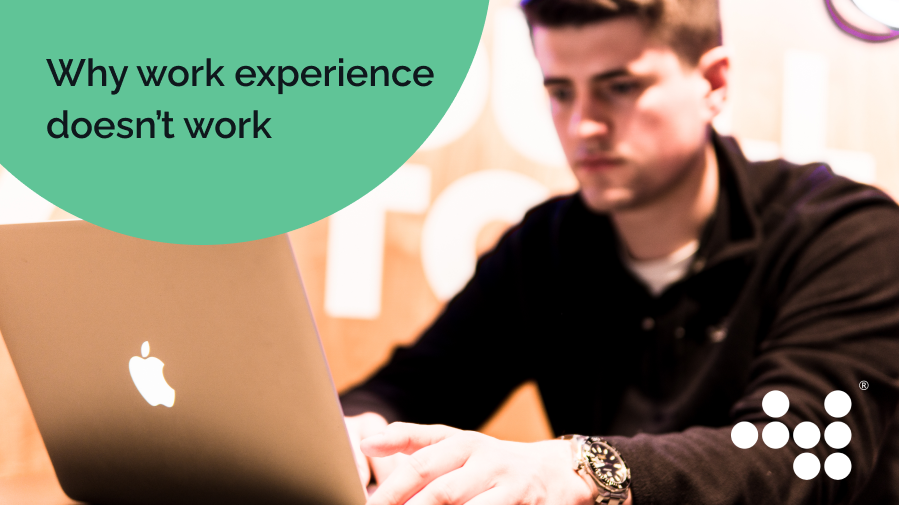Why work experience doesn’t work
I’m sure there are people out there who went on a work experience placement while at school and it changed their life. However, I’m also pretty convinced that for the vast majority of people this wasn’t the case. They were placed into something they were loosely interested in, or taken into work with their parents or friend of the family for the week. They enjoyed the time out of school, and frankly, not much else.
Despite the good intentions, work experience isn’t a productive ‘process’ for students to go through. Thousands of individuals in schools annually spend countless hours attempting to place students in the world of work with the intention of widening their horizons and giving them something valuable on their CV or UCAS application. However, our opinion is that work experience doesn’t work. It doesn’t achieve its objective and it costs schools money each year.
It’s also too late. Why are we leaving it until a child is in Year 10+ to have a ‘work experience’. Children’s perceptions of the world and what they can achieve in it are formed at a much younger age. It’s predicted that 82% of Year 7 pupils have already formed strong opinions about their future careers.1 So why would we start doing it when they are already 15?
We believe the way we think about exposing children to the workplace and to their future career needs to change. We need to stop talking about work experience and start talking about experiences. To us an experience is something memorable which could alter their opinion about their future. Experiences should challenge them positively, and excite them about new opportunities, not just get them off school for a week.
These experiences should start from a much younger age. As we grow older our innate curiosity declines as well as our willingness to question the world around us. We should not be having a career conversation with a 9 year old, but instead, we should be providing them with a set of experiences which could help them on their journey to finding their passions.
Within that set of experiences, variety is key. Not everything is what it says on the label, and our pre-conceptions of what a field of work or industry might be like are often outdated, incorrect, or flat out wrong. A child might say they are interested in working for a start-up because they immediately think of shows like Dragons Den, but if that start-up is related to their passion, they might surprise themselves. We’ve got to encourage children to enjoy and dive into all sorts of experiences and immerse themselves in them to see what really does stick.
It’s time to drop ‘work experience’ as a process and start talking about experiences as a service. Work experience provides a child with, at best, one data point upon which to base their career and life decisions. A variety of experiences at a younger age will allow children to make more informed choices about their future, find something they are passionate about, and build a career and life around it. Work experiences don’t work, but experiences will.
1 Dr Graeme Atherton, Eric Cymbir, Professor Ken Roberts, Dr Lionel Page and Dr Richard Remedios. “How Young People Formulate their Views about the Future”. Aimhigher Central London Partnership, University of Westminster, 2009, pp. 3.
_
8billionideas is an online learning service with interactive experiences, courses, videos, and live mentoring where your child can find and explore their passion. They want to teach children what schools do not, through live experiences and mentoring with trained facilitators, engaging videos, and courses that kids can explore at their own pace. The platform offers unlimited mentor support to give children the possibility to talk to a real person who will support the curious minds. Learn more at 8billionideas.com




